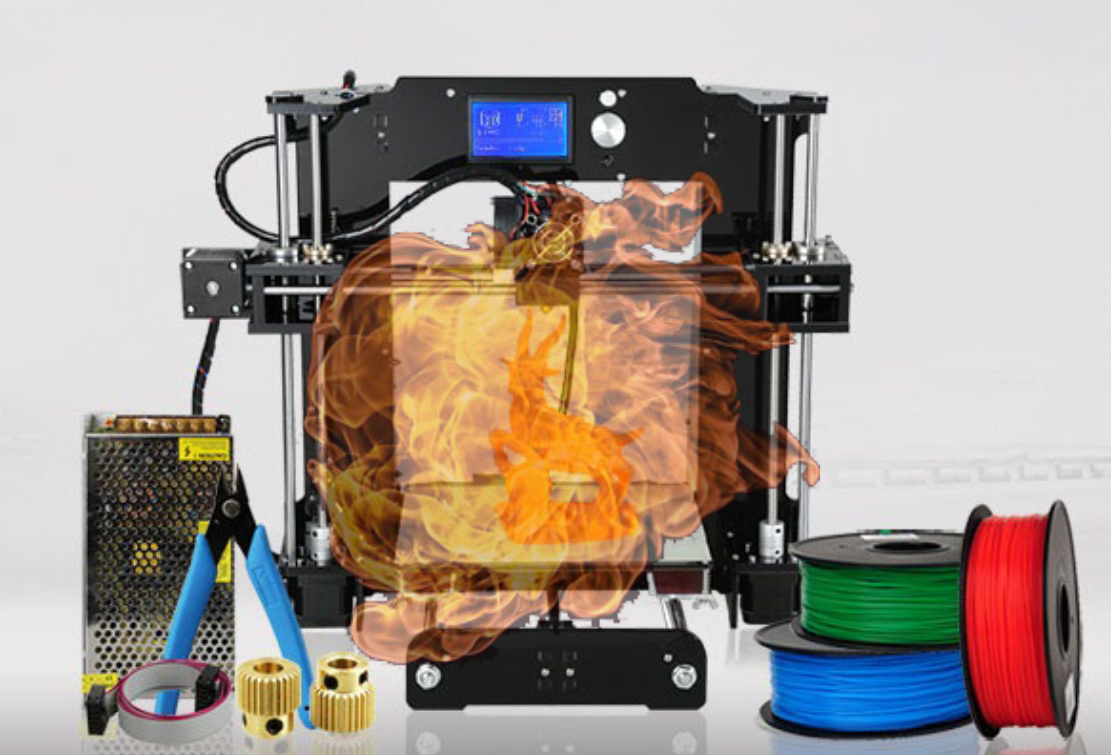
There are certainly benefits to 3D printing at home, but there are multiple dangers you should be aware of. One of them is fire.
I’m reading a Reddit post by contributor jaykoblanco, who describes a rather dicey situation at his residence:
So last night my printer caught fire while I was out. Luckily my girlfriend was home and was able to put it out. It was a small fire too, thankfully, and it didn’t spread. From what I can tell the heater cartridge slipped out of the block and on to the bed, and the print caught fire.
It melted the extruder cooling fan and X-axis belt, and I’m not sure if there is damage/warping to the bed but the extruder, at least, looks extra crispy. I thought I might as well make the most of this and ask around for extruder upgrades people have experience with.
and
The fire was small, just on the board. Wouldn’t be surprised if I needed a new bed, but it was no where near the board or PSU, and there is no damage to the plexiglass frame. The thing powers up just fine as it is too.
While this incident turned out well, it could have been far worse. If no one were present at this event, major damage to the home could have occurred.
In fact, jaykoblanco intends on replacing the extruder and hot end and continuing to use the machine, which somehow could actually powered up after the incident. Personally, I would not use such a machine after that kind of incident.
But this incident shows one of the major risks in using equipment inside the home. There are several ways a 3D printer could catch fire, and while some designs include means to avoid them, some units do not.
Do you know which ones are safe and which are not?
One way to assist in ensuring safety is to inspect the equipment and see if it has any certifications. If the machine has, for example, obtained a UL certification, you have some assurance it has passed standards testing. But few 3D printers have such certification.
Often machines are brought in from other countries, where standards may be different from the expectations in your country, or even non-existent.
While no desktop 3D printer can be entirely safe, I would place more risk on the lower cost units that may have been assembled with less than the best components or use designs that may permit situations such as that described above.
Above all, if you are 3D printing at home, please ensure the device is supervised. Never leave a desktop 3D printer unattended for any length of time.
Via Reddit

